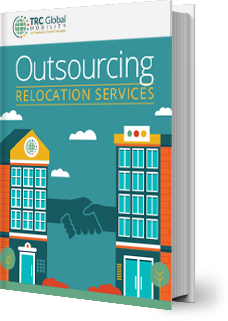
As the Covid pandemic begins to recede in the U.S., companies are contemplating how their post-covid workplaces will look. Will they allow most employees to continue to work remotely? Require them to return to the office? Embrace a hybrid in-office/remote model? And what role will relocation and relocation management companies play in managing a dispersed workforce? While it’s impossible to answer these questions definitively, if you read the tea leaves, we have quite a few clues already.
Right now, the short-term, Covid-related talent shortage is very much in the news. Particularly acute in the service and hospitality industries, this shortage stems from several factors. It is likely to sort itself out in the coming months as the economy recovers, children return to school, and women fully return to the workforce.
However, this simply brings us back to where we were pre-pandemic: a significant and growing long-term shortage of professional workers. This shortage, taken with other emerging trends, suggests that relocation and relocation management companies could become even more relevant over the next decade.
Shortage of Skilled Workers
Several years ago, a Korn Ferry report predicted that more than 85 million jobs could go unfilled worldwide by 2030 because there aren’t skilled workers to take them. The report noted that “Left unchecked, in 2030 that talent shortage could result in about $8.5 trillion in unrealized annual revenues.” Companies will continue to compete mightily for the best and the brightest, wherever they can find them.
Retirements Surging
According to a Pew Research Center study, there was a surge of retirements in the U.S. in 2020. Through Q3 2020, the number of retirements was 1.2m higher than the average over the past ten years. The surge is attributed not only to health concerns but rapidly growing retirement account balances. Of course, many retirees leave key management positions vacant as they depart, and most are unlikely to return to the workforce post-Covid. Ten thousand American workers reach retirement age every day. Employers will need to conduct a national or global search to replace the lost talent in many cases.
The Need to Develop and Retain Current Employees
A recent Prudential survey estimated that one in four workers plan to look for a new job once the pandemic has passed. Within this group, 80 percent say they are concerned about their career growth, and 72 percent want to expand their skill sets.
There’s no substitute for broad exposure to company operations, locations and culture, and a nexus of relationships developed throughout the organization in developing future company leaders. “Governments and organizations must make talent strategy a key priority and take steps now to educate, train, and upskill their existing workforces,” says Yannick Binvel, president of Korn Ferry’s Global Industrial Markets practice.
The Limitations of Remote Work
Most organizations are not anticipating an entirely and permanently dispersed workforce. While videoconferencing proved to be a boon during this emergency, it also demonstrated that remote collaboration could be somewhat constrained and sterile. Company culture and collaboration suffer in a fully dispersed model, creating a gig worker-like network of individual contributors.
The more likely evolution is a hybrid model. In the same Prudential survey, 87 percent of American workers say they would prefer to continue working remotely at least one day a week. Post-pandemic, 68 percent of employees say they’d choose a hybrid model, with time divided between home and the office. Most see the value of at least some time spent in an in-person, collaborative environment. To the extent business moves to a hybrid model, employees will still need to live within reasonable commuting distance from the office, which takes the glamour (and compliance headaches) of “work from anywhere” out of the equation.
Employees are Willing, Even Eager, to Move
According to Worldwide ERC, 69 percent of U.S. workers would move elsewhere in the U.S. for the right job. However, 82 percent of these workers would expect employer-sponsored relocation assistance to do so. While global moves have been disrupted, younger workers, in particular, have been keen to take on international relocation work experiences. These employees also tend to have more modest expectations for global relocation benefit packages than earlier generations of assignees.
 Learn more about outsourcing services to relocation management companies with TRC’s ebook: Outsourcing Relocation Services: Is it Right for Your Organization?
Learn more about outsourcing services to relocation management companies with TRC’s ebook: Outsourcing Relocation Services: Is it Right for Your Organization?





